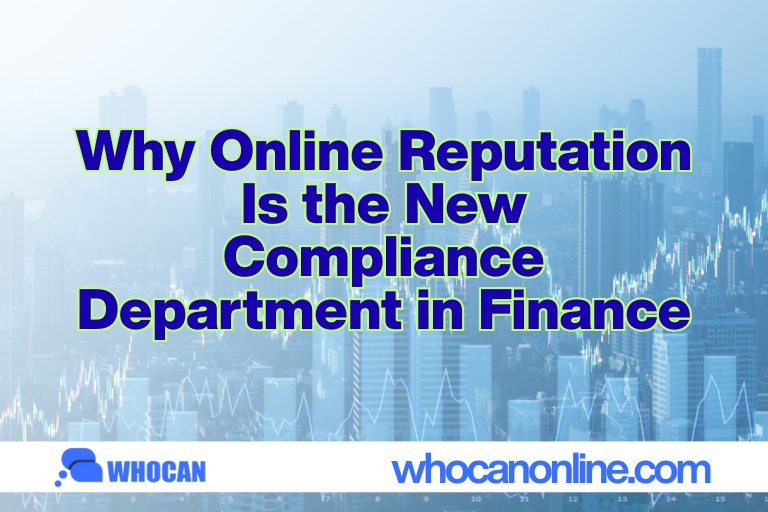In finance, a single viral post can do as much damage as a regulatory fine. Markets move on trust, and today that trust lives online. Investors, customers, and regulators don’t just review filings—they check online reputation.
The Role of Traditional Compliance
Compliance in finance has traditionally focused on legal requirements and oversight. Institutions follow rules like the Sarbanes-Oxley Act and Dodd-Frank to prevent fraud, ensure fair reporting, and protect customers.
- Audit trails track every transaction for accountability.
- Fiduciary duties require transparency and disclosure of conflicts.
- Regulators like the SEC enforce hundreds of actions each year.
Technology has strengthened these systems. Blockchain creates permanent records, and AI flags unusual trading activity in real time. These tools reduce errors and increase accountability.
Why Online Reputation Matters Now
While laws address compliance on paper, online reputation reflects compliance in practice. Public opinion, driven by digital platforms, can change the course of an institution’s future faster than any filing.
- Investors check digital sentiment before funding decisions.
- Customers share experiences instantly on social media.
- Regulators factor online behavior into investigations.
Reputation has become a financial asset. A strong one attracts capital and loyalty. A weak one raises doubts and invites scrutiny.
Compliance and Reputation: The Same Principles
Reputation management mirrors compliance in three key ways:
1. Monitoring in Real Time
Compliance officers track trades. Reputation teams must track mentions. Tools like Brandwatch, Mention, and Google Alerts flag early risks so firms can respond before issues escalate.
2. Enforcing Standards
Financial firms already train staff on regulations. The same should apply to online conduct. Clear policies for employee posting, disclosure, and data use protect against breaches and misleading statements.
3. Accountability and Audits
Just as firms undergo regular compliance audits, they need reputation audits. These reviews look at sentiment, search results, and digital exposure. They reveal risks before they turn into scandals.
The Risks of Neglecting Online Reputation
Ignoring online reputation carries real costs:
- Financial loss: Viral reviews or negative news can cut market cap by billions.
- Customer attrition: Distrust drives people to competitors.
- Regulatory trouble: False or misleading online statements trigger FTC or SEC penalties.
- Legal exposure: Data mishandling or misrepresentation can lead to GDPR fines or class-action lawsuits.
In other words, a damaged online reputation is more than a PR problem—it’s a compliance failure with measurable consequences.
Building a Reputation Compliance Strategy
Financial institutions need to treat reputation like compliance, with formal systems in place. Steps include:
- Audit the digital footprint
- Set up monitoring tools
- Create cross-functional teams
- Measure with KPIs
- Review regularly
Tools That Support Reputation Oversight
- Mention
- Brandwatch
- Hootsuite
- Meltwater
- Google Alerts
The right tool depends on scale, but all serve the same purpose: making reputation measurable, trackable, and manageable.
Also Read: MyFastBroker: Your Trusted Partner for Insurance, Loans, and Mortgage Solutions
Final Thoughts
Compliance has always been about protecting integrity. Online reputation is inseparable from that mission. It is no longer just a PR concern—it is the new compliance department in finance.
Firms that manage reputation with the same discipline as legal compliance will safeguard trust, reduce risk, and stay competitive in a market where perception drives performance.
